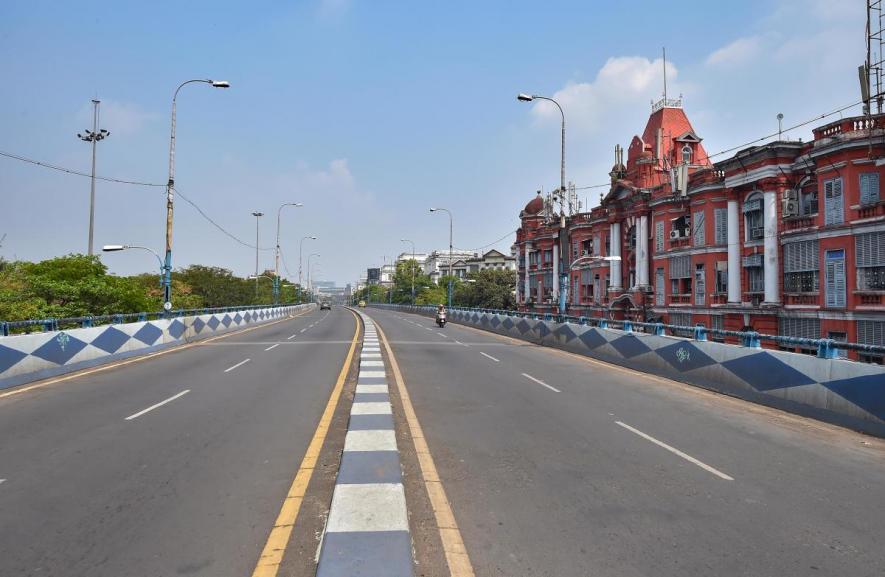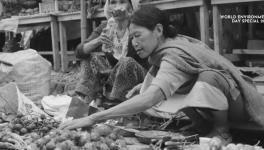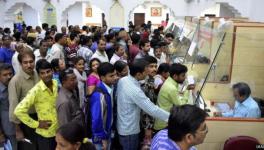India Must Avoid Lockdown-Related Deaths: Here is How

Now that India has embarked on an unprecedented three-week lockdown, we need to immediately and carefully understand the categories of people who will be most vulnerable. This identification must be done in the very early stages of this shutdown, so that these categories of people can be provided with the required support.
If the lockdown continues without adequate remedial action, the consequences will be dire. Consider, for example, India’s total number of villages: roughly 6 lakh. If, as an estimated, it is presumed that one additional death will occur, on average, in most of these villages during the 21-day lockdown, and in its immediate aftermath (about 9 days), that would imply around 6 lakh additional deaths from non-Covid-19 causes in villages. To this we may add two lakh deaths in urban areas, or a total of 8 lakh deaths if no remedial steps are taken.
Presuming there is some remedial action, one can conservatively estimate some 5 lakh deaths will take place in the one month of the lockdown plus its immediate aftermath.
The basis for this presumption would be clear to anyone who is familiar with the settlements of the weaker sections in rural and urban areas. Each settlement has, invariably, several highly vulnerable households who even in normal times are unable to meet their basic needs of food, water and sanitation. This includes the very poor, the lonely elderly, widows, people who have aged prematurely due to poverty and disease, disability-affected people, people suffering from longer-term disease and mental health problems.
They need help for meeting their daily essential needs. However a prolonged lockdown can make it difficult for them to seek this help and in addition the ability of kind people to provide this help is also affected adversely.
It must be emphasised that these 5 lakh death are not inevitable. Their lockout-related distress can be reduced very significantly by effective, timely, well-implemented remedial actions. This can include a combination of making available free rations to vulnerable people, improving the PDS system as a whole and including pulses and some other essential commodities in its purview.
Plus, one can provide cash support to vulnerable people, stock all hospitals with essential medicines in adequate quantities and make these available free to all needy patients. There is a need to also make special effort to protect the homeless, those caught midway or in transit due to the closure of public transportation including trains and those affected by violence and riots.
A large number of people need essential medicines just to survive. For this it is important that governments and local administrations do not assume that everybody has stocked up adequately for the entire 21 days ahead. Hospitals and chemist stores will be open during the lockout, but there can be disruptions in supply lines of medicines, including life-saving drugs. Certainly, it will not be easy, if at all possible, for patients to go looking for medicines in a wider area. It is their local sources that they will rely upon for essential medicine.
A large section may not even have the money to purchase the medicines they need, for the lockdown has reduced and disrupted their sources of income. This is not a problem that only existing patients confront. Some people may be suffering from serious illness other than Covid-19. Or they may suffer serious injuries after the lockdown is in effect.
With hospitals straining under Covid-19, a serious disruption of income and possibilities of immediately obtaining help from friends and relatives reduced considerably, the chances of these people getting timely medical help and medicines are going to reduce drastically unless appropriate remedial measures are put in place right away.
The entire nation has gone into quarantine at a time when migrant workers were in various stages of returning to their villages. When they arrive home suddenly, they often lose out on contract-end payments. So many of them are likely to be very short of funds. As the lockdown has started in March, the month-end payment will be difficult to access for a large number of workers and weaker section employees.
Remember, even the days before this lockout were not normal. Most workers had taken a hit on their sources of income already. A disruption of public transport creates huge difficulties for people who need to return home; they also have to spend more to travel. Plus, when they do reach home, they find their families are also economically worse off than usual.
In addition there are the health related implications of migration and return, which require special attention.
At least 1.77 million people in India are homeless, according to Census 2011. Add to this those rendered homeless by violence and riots in recent times. How do they survive in times of lockdown?
Many poor families have very low stocks of food, and often no stocks at all. Their ability to get PDS rations has been adversely affected by enforcement of biometric rules and other techno-norms that are exclusive rather than inclusive. The number of members in many of these families has, in recent years, been arbitrarily reduced. Ration cards have been cancelled arbitrarily as well, which adds to those poorest people who could not procure ration cards in the first place.
Even if a family is able to draw full rations, if all members eat well, the ration lasts only for about 10 days a month and for the remaining days the much more expensive general market rates have to be paid. In most parts of the country, only grain staples such as wheat or rice are available through the PDS. In today’s lockdown conditions, unless very strong remedial action is taken, in the greater part of the country there are likely to be more difficulties in obtaining rations, while general market access is likely to reduce or become more difficult; and prices are likely to increase, while there is likely to be much less cash with people to make ration or open-market purchases. Hence, hunger and malnutrition conditions, already very severe among the millions of poor families, especially women, are likely to be aggravated.
Water and sanitation conditions are very poor for a very large number of poor people in India. Water is not available in or near homes, so people have to walk a considerable distance. A simple case of a hand-pump being out of repair can lead to women of a settlement having to go to another settlement to plead or even beg for water.
Caste and untouchability further worsens the situation for some of the poorest communities. Unless strong remedial steps are taken and that too very quickly on a large scale, water and sanitation conditions can become more difficult for the vulnerable poor.
A list of such vulnerabilities and problems which can worsen during lockout can be extended, but suffice it to say that the access to essential medicines and medicare (for diseases and health problems other than Covid-19), food, water and sanitation can worsen during the lockout and due to this life of a large number of people may be endangered.
Some of these problems are likely to aggravate due to the well known and well-documented authoritarian and discriminatory streaks that plague our governance systems, and which have increased in recent times.
Whatever the problems, they will not suddenly disappear in one day after the three-week lockdown. Uncertainties will remain and that is why, if on an average, one person dies in a village and one person in an urban colony/slum, then the additional death toll related to the lockdown and its immediate aftermath, can be over half a million, or over 5 lakh. But this is not inevitable if exceptionally strong and adequate remedial actions are taken—the lockdown-related distress and resulting fatalities can be reduced significantly.
There is an urgent need to be realistic and prepare for the longer haul. Creating a system of social distancing needs to co-exist with essential survival needs, particularly for the poorer and vulnerable. Life-sustaining essential needs need to be provided by a governance system that undertakes work in a humanitarian spirit which responds to multiple high-priority needs. If such a system is created, we can also sustain it for a longer period, beyond this crisis.
The writer has written for several decades on health and other basic needs of weaker sections. The views are personal.
Get the latest reports & analysis with people's perspective on Protests, movements & deep analytical videos, discussions of the current affairs in your Telegram app. Subscribe to NewsClick's Telegram channel & get Real-Time updates on stories, as they get published on our website.
























